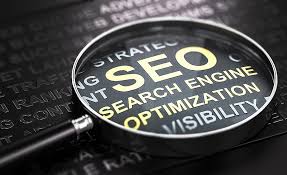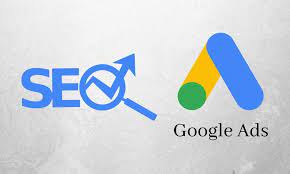Unlocking the Potential of Local Search Engine Marketing: A Guide for UK Businesses
The Power of Local Search Engine Marketing
Local search engine marketing (SEM) has become an essential tool for businesses looking to attract customers in their specific geographical area. With the rise of mobile searches and the increasing emphasis on local results by search engines like Google, local SEM offers a powerful way to connect with potential customers right when they are searching for products or services.
What is Local SEM?
Local SEM involves optimising your online presence to appear in search engine results for local queries relevant to your business. This includes targeting keywords with local intent, creating location-specific landing pages, and managing your online reviews and citations.
The Benefits of Local SEM
Increased Visibility: By optimising your website for local search terms, you can increase your visibility in local search results, making it easier for potential customers to find you.
Targeted Traffic: Local SEM allows you to target customers in specific geographic locations who are more likely to convert into leads or sales.
Improved Brand Awareness: Appearing in local search results can help raise awareness of your brand among local audiences, leading to increased brand recognition and trust.
Key Strategies for Local SEM
To make the most of local SEM, consider implementing the following strategies:
- Optimise Your Google My Business Listing: Ensure that your Google My Business profile is complete and accurate with up-to-date information about your business, including address, phone number, and business hours.
- Create Location-Specific Content: Develop content that is tailored to the interests and needs of your local audience. This can include blog posts, case studies, or testimonials that highlight your presence in the community.
- Encourage Customer Reviews: Positive reviews can boost your credibility and visibility in local search results. Encourage satisfied customers to leave reviews on platforms like Google My Business or Yelp.
- Local Link Building: Build relationships with other local businesses or organisations to earn backlinks from reputable sources within your community.
The Future of Local SEM
In an increasingly competitive digital landscape, investing in local SEM will be crucial for businesses looking to stand out from the crowd and attract nearby customers. By leveraging the power of local search engine marketing, businesses can drive targeted traffic, increase brand visibility, and ultimately grow their customer base within their local area.
8 Benefits of Local Search Engine Marketing: Boost Visibility, Conversion, and Brand Awareness
- Increased visibility in local search results
- Targeted reach to potential customers in specific geographic locations
- Higher conversion rates as local audiences are more likely to convert into leads or sales
- Enhanced brand awareness among local audiences
- Cost-effective marketing strategy compared to traditional advertising methods
- Ability to track and measure the effectiveness of local SEM campaigns through analytics
- Improved online reputation through positive customer reviews and ratings
- Opportunity to outperform competitors in the local market by appearing prominently in search results
Challenges of Local Search Engine Marketing: Navigating Competition, Resource Demands, and Algorithm Dependency
Increased visibility in local search results
One significant advantage of local search engine marketing is the increased visibility it offers in local search results. By optimising your online presence for local search terms, businesses can enhance their chances of appearing prominently when potential customers in the area are actively seeking products or services. This heightened visibility not only boosts brand awareness but also makes it easier for local audiences to discover and engage with your business, ultimately driving more targeted traffic and potential conversions.
Targeted reach to potential customers in specific geographic locations
Local search engine marketing offers businesses the invaluable advantage of targeted reach to potential customers in specific geographic locations. By tailoring online strategies to focus on local audiences, businesses can connect with individuals who are actively seeking their products or services within a particular area. This targeted approach not only increases the likelihood of converting leads into customers but also enhances brand visibility and relevance within the local community.
Higher conversion rates as local audiences are more likely to convert into leads or sales
One of the significant advantages of local search engine marketing is the higher conversion rates it offers, as local audiences are inherently more inclined to convert into leads or sales. By targeting customers in specific geographic locations through tailored local SEM strategies, businesses can effectively reach an audience that is actively seeking their products or services within their vicinity. This targeted approach not only increases the likelihood of conversions but also fosters a stronger connection with potential customers who are more likely to engage with and make purchases from businesses that cater to their local needs.
Enhanced brand awareness among local audiences
Enhanced brand awareness among local audiences is a significant benefit of local search engine marketing. By optimising your online presence for local search queries, you can increase visibility within your community and make it easier for local customers to discover and engage with your brand. This heightened exposure not only helps in establishing a stronger brand presence locally but also fosters trust and loyalty among nearby consumers who are more likely to choose a familiar and reputable brand when making purchasing decisions.
Cost-effective marketing strategy compared to traditional advertising methods
Local search engine marketing offers a cost-effective marketing strategy when compared to traditional advertising methods. By targeting specific local audiences through online channels, businesses can reach potential customers at a fraction of the cost of traditional print or broadcast advertising. This targeted approach not only helps in reducing marketing expenses but also ensures that resources are allocated efficiently towards reaching the right audience most likely to convert into leads or sales. Overall, local SEM provides businesses with a cost-efficient way to promote their products or services and achieve measurable results within their local market.
Ability to track and measure the effectiveness of local SEM campaigns through analytics
One significant advantage of local search engine marketing is the ability to track and measure the effectiveness of local SEM campaigns through analytics. By utilising tools such as Google Analytics, businesses can gain valuable insights into the performance of their local SEM efforts, including website traffic, user engagement, conversion rates, and more. This data-driven approach allows businesses to make informed decisions, refine their strategies, and allocate resources effectively to maximise the impact of their local SEM campaigns. The ability to measure and analyse campaign results empowers businesses to continuously improve their online visibility and drive tangible results within their target geographical areas.
Improved online reputation through positive customer reviews and ratings
One significant advantage of local search engine marketing is the potential to enhance online reputation through positive customer reviews and ratings. By actively encouraging satisfied customers to leave feedback on platforms like Google My Business or Yelp, businesses can build trust and credibility with prospective clients. Positive reviews not only boost visibility in local search results but also contribute to a strong online reputation, showcasing a commitment to customer satisfaction and quality service. This proactive approach to managing customer feedback can lead to increased brand loyalty and attract new customers seeking reliable businesses with a proven track record of excellence.
Opportunity to outperform competitors in the local market by appearing prominently in search results
Local search engine marketing offers businesses the valuable opportunity to surpass their competitors in the local market by securing prominent visibility in search results. By strategically targeting local keywords and optimising their online presence for specific geographical areas, businesses can outshine rivals and attract more potential customers who are actively seeking products or services within their vicinity. This competitive advantage not only enhances brand recognition but also increases the likelihood of converting local searchers into loyal customers, ultimately driving business growth and success in the local market.
Increased Competition
One significant drawback of local search engine marketing is the heightened competition it can bring about. As more businesses focus on targeting the same local audience through SEM strategies, the competition for visibility and top rankings in search results intensifies. This increased competition poses a challenge for businesses aiming to stand out and secure prominent positions in local search listings, requiring them to invest more resources and implement more sophisticated tactics to maintain a competitive edge in the crowded local market.
Resource Intensive
One significant drawback of local search engine marketing is its resource-intensive nature. Implementing successful local SEM strategies demands a considerable investment of time, effort, and resources. Managing and optimising elements like Google My Business listings, creating location-specific content, and monitoring online reviews require dedicated attention and expertise. The need for ongoing maintenance and updates can strain a business’s resources, making it challenging to sustain the level of commitment necessary for effective local SEM implementation.
Dependency on Algorithm Changes
One significant drawback of local search engine marketing is the dependency on algorithm changes. The success of a local SEM strategy is heavily influenced by the ever-evolving algorithms of search engines, such as Google. These algorithms undergo frequent updates, making it challenging for businesses to maintain their visibility and rankings. Adapting to these changes can be a continuous process that demands flexibility and ongoing monitoring to ensure that the local SEM efforts remain effective and aligned with the latest algorithmic requirements.


